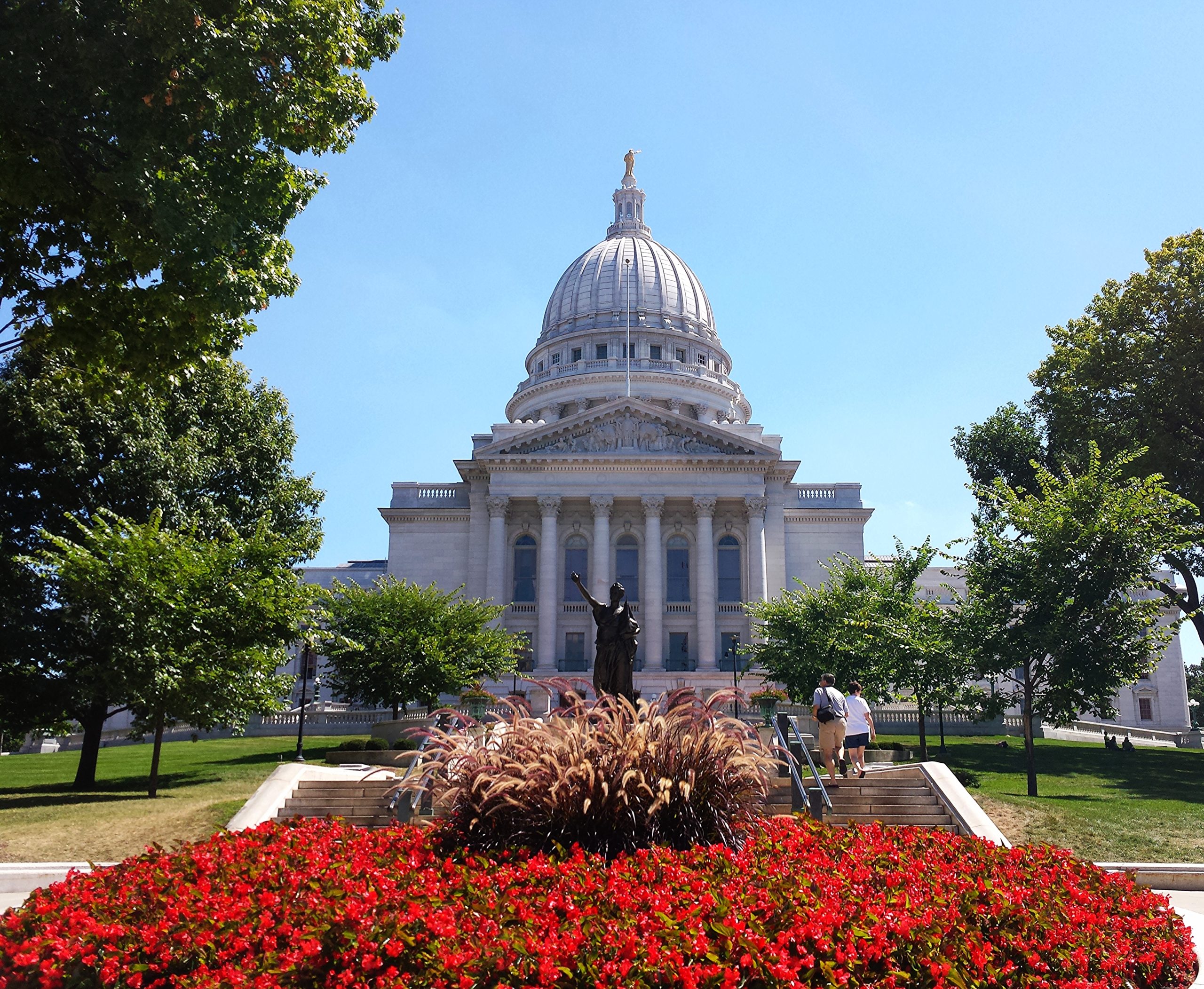With recently introduced legislation and a new stakeholder alliance Wisconsin is poised to become the 23rd state to pass community solar laws
Soon legislators in Wisconsin will introduce LRB 1902, a bill to open competitive community solar markets in the state. The proposed legislation, sponsored by Sen. Duey Stroebel (R – Saukville) and Rep. Timothy Ramthun (R – Campbellsport), represents the shifting reality of the cost-competitiveness of renewable energy, as well as the changing Midwestern energy landscape.
“As a conservative, I’ve spent part of my career arguing against renewable energy for a variety of reasons,” said Scott Coenen, executive director of the Wisconsin Conservative Energy Forum. “But the market looks completely different now. Conservatives are starting to realize that renewables have a whole new future.”
Community solar allows energy customers to subscribe to a locally based solar array and receive an energy bill credit, while landowners who lease their land to community solar developers can earn income on otherwise underused property. This stands in contrast to green tariff programs that sometimes increase consumer energy costs and are generally only available to large electricity customers. While community solar projects have taken off nationwide in recent years, states have to pass legislation to allow for competitive markets, which has allowed some to jump ahead in the race toward renewables. More than 20 states have done so, as the bill savings, economic development and broader societal and market benefits have proven attractive to residents in those states.
“We are uniquely behind all of our Midwest neighbors on the development of community solar,” said Coenen. “You look at our neighbors taking advantage of these policies, and there’s a real sense that we’re missing out on investment opportunities in this state because we have the wrong regulatory framework.”
“There are contractors in Wisconsin who have to leave the state to do renewables work,” added John Schulze, director of legal and government affairs for Associated Builders and Contractors of Wisconsin (ABC-WI), a trade organization representing more than 900 contractors.
Wisconsin Conservative Energy Forum and ABC-WI are two of eight founding organizations that have formed a stakeholder alliance to advocate for community solar in the state. The Wisconsin Community Solar Economic Alliance also includes Organic Valley, Advocate Aurora Health, RENEW Wisconsin, Wisconsin Grocers Association, Land and Liberty Coalition of Wisconsin, and the Coalition for Community Solar Access. All have banded together in the interest of making the state more competitive with its neighbors, which they say will create jobs while reducing energy costs.
It wasn’t always this way. But recent technological advances have made community solar more affordable, and it has spurred legislators in Wisconsin and elsewhere to take up new legislation that will change their states’ energy markets.
“I like to think that I’m fact and data-driven, and the facts are what they are now. Renewables are cost competitive,” said the Wisconsin Conservative Energy Forum’s Coenen. “These technologies are ready for prime time and we need to take advantage of them.”
Schulze agreed. “Every day that goes by, renewable projects are more ‘in the money,’” he said. “With improved collection and battery storage, these projects are making simple financial sense by themselves.” With community solar, he added, “we’ll have more competition for these projects, and that will benefit the ratepayers.”
The Wisconsin Utilities Association sent a letter to legislators indicating their opposition to the bill but did not return a request for comment for this story.
Advocates are hoping for a public hearing this fall in both the senate and the assembly. In the meantime, they are working to educate lawmakers about the market-oriented benefits of community solar.
“We hope that in Wisconsin this piece of policy really marks a turning point for us,” said Coenen. “I hope that this represents an emerging consensus on this side of the aisle that we have to embrace this.”




